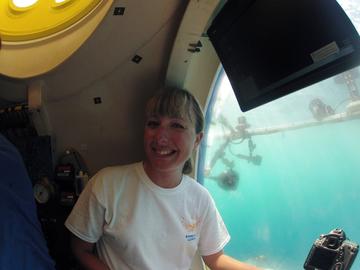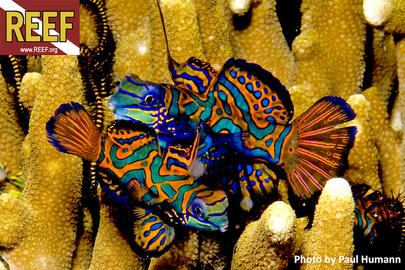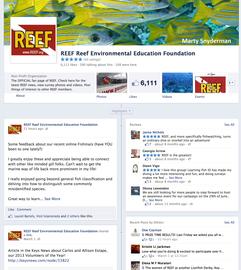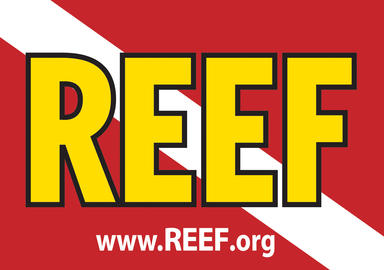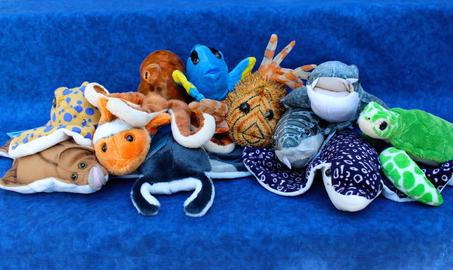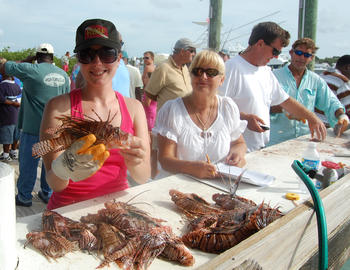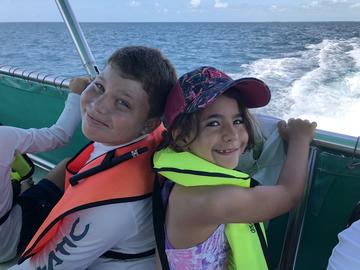REEF's Director of Special Projects, Lad Akins, and REEF affiliate scientist Dr. Stephanie Green (Oregon State University) and REEF Advisory Panel member Dr. Steve Gittings (NOAA National Marine Sanctuaries) participated in the first submersible expedition to assess the lionfish invasion on deep marine habitats off South Florida June 27-29. While REEF and other scientists have studied lionfish in shallow habitats, the Antipodes lionfish expedition gave scientists the opportunity to learn about lionfish populations far below recreational diving limits.
Thank you to all our members who have donated during our winter fundraising campaign! If you haven’t yet made a donation, we still need your help. Tomorrow is the last day to make a 2016 tax deductible donation. Please take a moment to contribute online at www.REEF.org/donate, mail your donation to REEF at PO Box 370246, Key Largo, FL 33037, or call us at 305-852-0030. Donors giving $250 or more will receive a limited edition, signed and numbered Paul Humann print featuring two Mandarinfish.
A segment featuring REEF's research on the invasion of the Indo-Pacific Lionfish into the western Atlantic and Caribbean was featured on NBC Nightly News June 30th. Click here to view the segment online.
Dear Valued REEF Members,
Want to get the latest news and updates from REEF? Then be sure to check our the REEF Facebook Page. You don't have to be on Facebook to view the page, but if you do have a Facebook profile, be sure to "like" us so that all of the latest information about REEF's programs and events, our marine conservation work, and exclusive content and stories will go straight to your feed.
Want to get the latest news and updates from REEF? Then be sure to check out the REEF Facebook Page. You don't have to have a Facebook account to view the page, anyone can look at the content. If you do have a Facebook profile, be sure to "like" us so that all of the latest information about REEF's programs and events, our marine conservation work, and exclusive content and stories will go straight to your feed. It's also a great place for our members to post pictures, fish stories, and whatever is on their mind.
Have you registered for REEF Fest 2015 yet? It’s not too late! Join REEF, September 24th-27th, for a celebration of marine conservation success in the Florida Keys!
REEF Conservation Creatures are iconic marine species found throughout REEF’s nine Volunteer Fish Survey Project regions. From the Tropical Western Atlantic (TWA) to the Central Indo-Pacific (CIP), these marine creatures highlight the diversity of ocean ecosystems and encourage understanding and respect for marine life. Each plush comes with a collectable, laminated Conservation Card that provides information about the animal’s habitat, characteristics, potential threats, and global distribution in REEF's Survey Project regions.
Our Invasive Lionfish Research Program is keeping busy getting ready for the spring and summer. In addition to the tagging research in the USVI also reported in this month's E-News, we are also gearing up for a busy Lionfish Derby season. We have six derbies planned in Florida for REEF’s 2018 Lionfish Derby Series presented by Whole Foods Market®. These competitions encourage teams to collect and remove as many lionfish as possible. They are important education and outreach events, and have been shown to be quite effective in lowering local lionfish populations.
It was a busy summer for REEF’s Explorers Education Program, between the Ocean Explorers Summer Camp and the “Nature Days” program with the Florida Keys Children’s Shelter. Throughout the summer, 80 children joined REEF to learn about marine conservation and environmental science in a fun, outdoor setting. Thank you to John Pennekamp Coral Reef State Park, Coral Reef Park Company, Florida Keys Wild Bird Rehabilitation Center, Island Dolphin Care, and the Everglades Outpost who made these programs possible.

